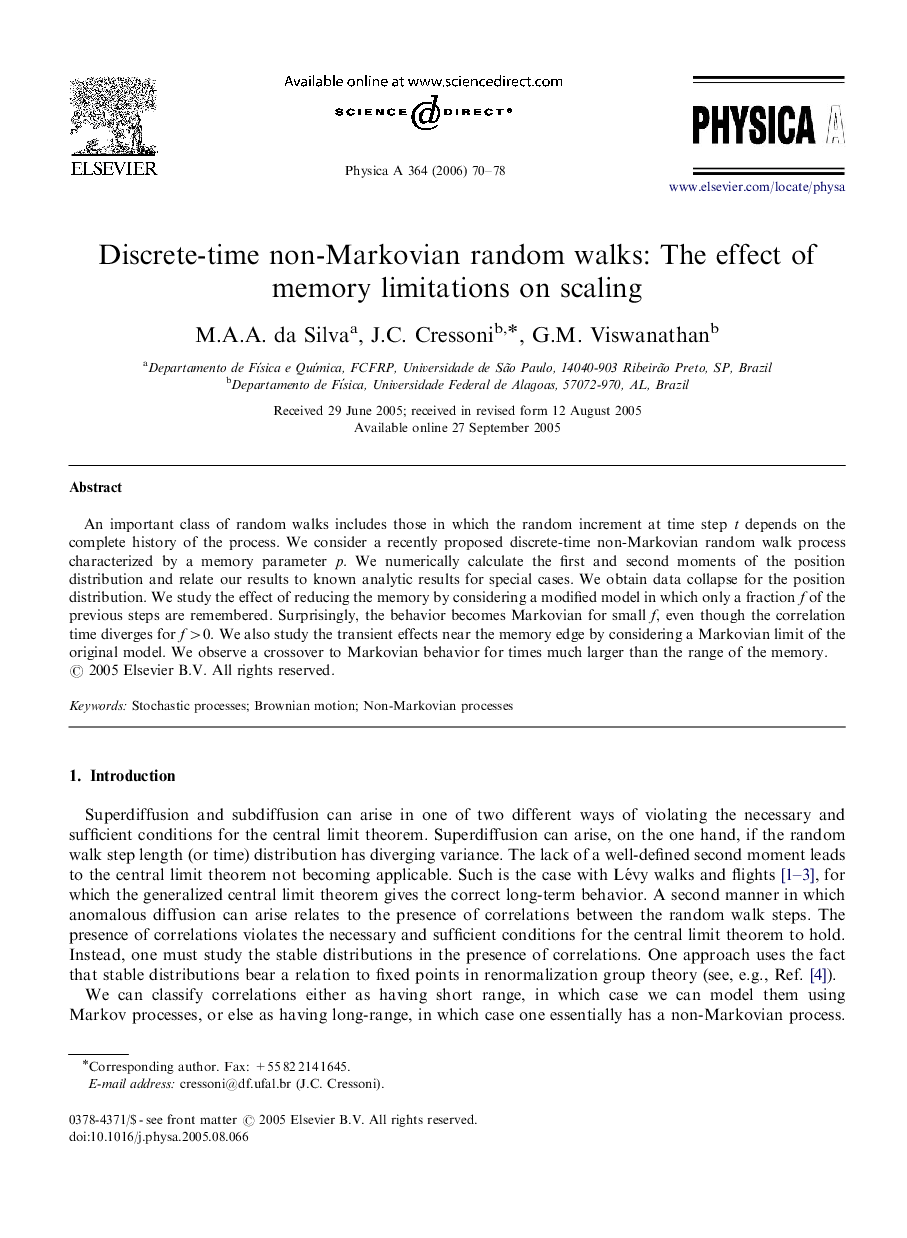| Article ID | Journal | Published Year | Pages | File Type |
|---|---|---|---|---|
| 977498 | Physica A: Statistical Mechanics and its Applications | 2006 | 9 Pages |
An important class of random walks includes those in which the random increment at time step t depends on the complete history of the process. We consider a recently proposed discrete-time non-Markovian random walk process characterized by a memory parameter p. We numerically calculate the first and second moments of the position distribution and relate our results to known analytic results for special cases. We obtain data collapse for the position distribution. We study the effect of reducing the memory by considering a modified model in which only a fraction f of the previous steps are remembered. Surprisingly, the behavior becomes Markovian for small f , even though the correlation time diverges for f>0f>0. We also study the transient effects near the memory edge by considering a Markovian limit of the original model. We observe a crossover to Markovian behavior for times much larger than the range of the memory.
